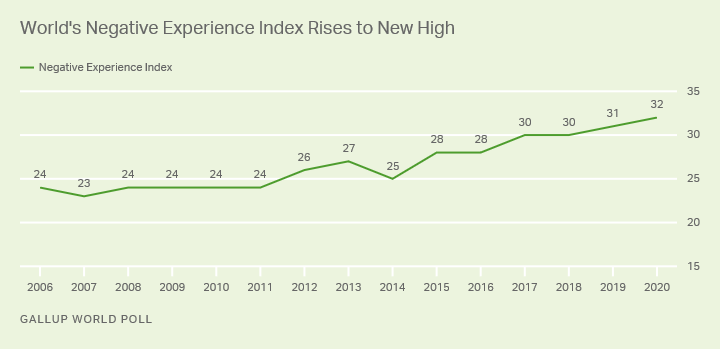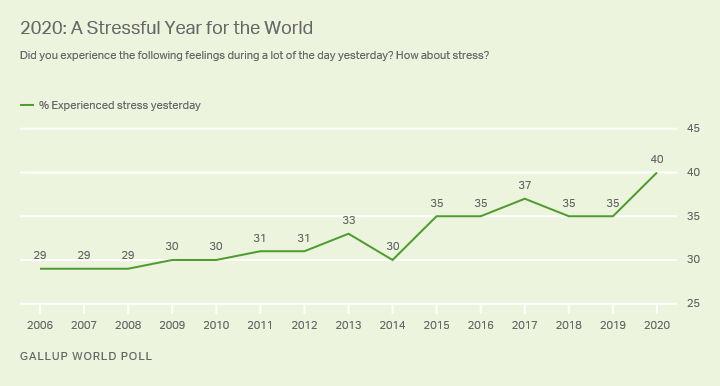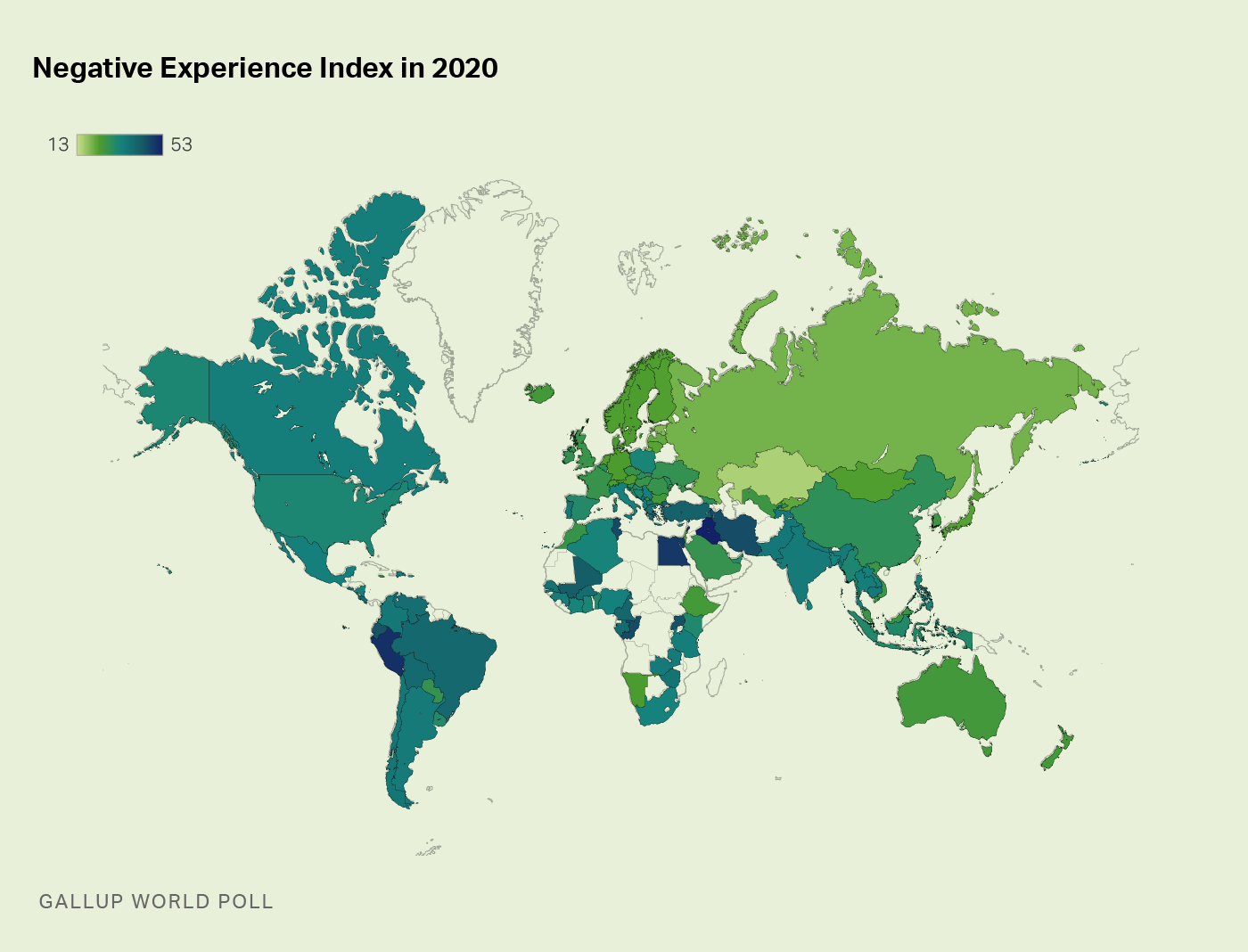Story Highlights
- Experiences of stress, worry, sadness and anger all set new records
- Iraq leads the world in negative experiences for second consecutive year
WASHINGTON, D.C. -- Nobody was alone in feeling more sad, angry, worried or stressed last year. Gallup's latest Negative Experience Index, which annually tracks these experiences worldwide in more than 100 countries and areas, shows that collectively, the world was feeling the worst it had in 15 years. The index score reached a new high of 32 in 2020.

Line graph. The Negative Experience Index, an annual composite index of stress, anger, worry, sadness and physical pain, continued to rise in 2020, hitting a new record of 32.
Gallup asked adults in 115 countries and areas if they had five specific negative experiences on the day preceding the survey. Four in 10 adults said they had experienced worry (40%) or stress (40%), and just under three in 10 had experienced physical pain (29%) during a lot of the previous day. About one in four or more experienced sadness (27%) or anger (24%).
Already at or near record highs in 2019, experiences of worry, stress, sadness and anger continued to gain steam and set new records in 2020. Worry and sadness each rose one percentage point, anger rose two, and stress rocketed up five. The percentage of adults worldwide who experienced pain was the only index item that declined -- dropping two points after holding steady for several years at 31%.
But 2020 officially became the most stressful year in recent history. The five-point jump from 35% in 2019 to 40% in 2020 represents nearly 190 million more people globally who experienced stress during a lot of the previous day.

Line graph. Reported stress worldwide soared to a record 40% in 2020 amid the COVID-19 pandemic.
Worldwide, not everyone was feeling this stress to the same degree. Reported stress ranged from a high of 66% in Peru -- which represents a new high for the country -- to a low of 13% in Kyrgyzstan, where stress levels have historically been low and stayed low in 2020.
Iraq Continues to Lead the World in Negative Experiences
Negative Experience Index scores worldwide ranged from a high of 53 in Iraq, which also led the world on the index in 2019, to a low of 13 in Taiwan, which also scored lowest in 2019.

Heat map. Range of scores on the Negative Experience Index ranged from a high of 53 in Iraq to a low of 13 in Taiwan, Province of China.
Iraq's Negative Experience Index score for 2020 represents a slight increase from its score of 51 in 2019. Negative experiences remained common for most of the population in 2020, with at least half of Iraqis experiencing each of the five negative emotions asked about in the survey. Notably, Iraqis led the world in experiencing pain (56%), anger (51%) and sadness (50%).
No other country posted a Negative Experience Index score higher than Iraq's, but, as in past years, people in countries and areas with high scores on the index in 2020 were contending with economic and political turmoil -- likely only made worse by the pandemic. Lebanon, which scores a close second on the Negative Experience Index and has been at the top of the index for the past two years, is a prime example.
| Negative Experience Index | |
|---|---|
| Iraq | 53 |
| Lebanon | 51 |
| Peru | 51 |
| Egypt | 50 |
| Tunisia | 47 |
| Congo | 46 |
| Iran | 46 |
| Uganda | 45 |
| Ecuador | 45 |
| Mali | 43 |
| Gallup World Poll, 2020 | |
Bottom Line
The pandemic is not entirely to blame for the world's emotional state. While 2020 may have been a record-setting year for negative emotions, the world has been on a negative trajectory for almost a decade.
That's not to say things can't or won't improve in the future. In the U.S. in 2021, people's ratings of their lives rebounded -- hitting new all-time highs -- and their emotions returned to pre-pandemic levels. But all the findings reinforce why it is important for leaders to ask, benchmark and understand how their people are living their lives.
Read more about the world's negative and positive experiences in the Gallup Global Emotions 2021 report.
To stay up to date with the latest Gallup News insights and updates, follow us on Twitter.





